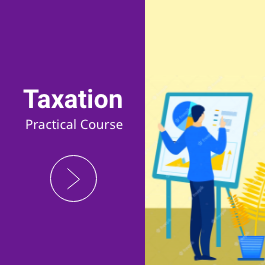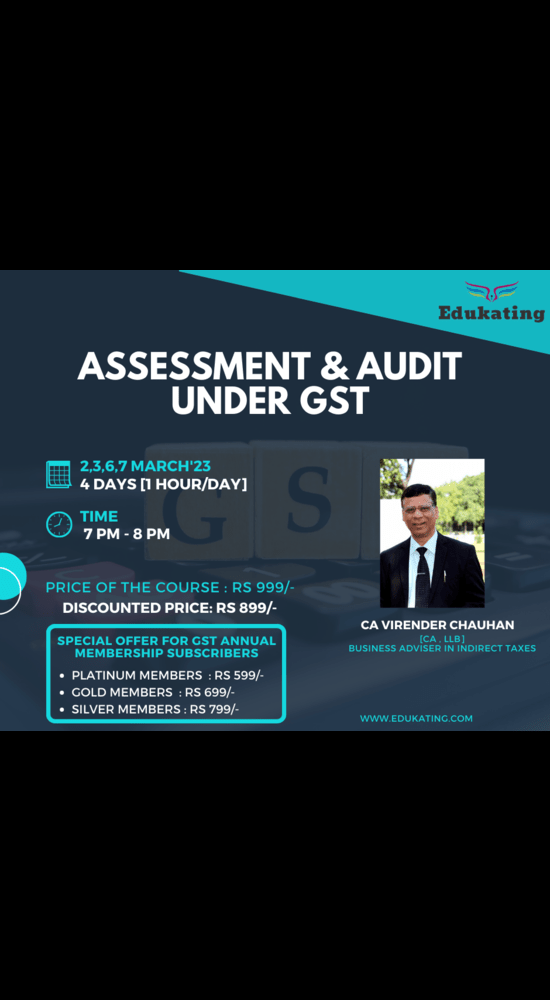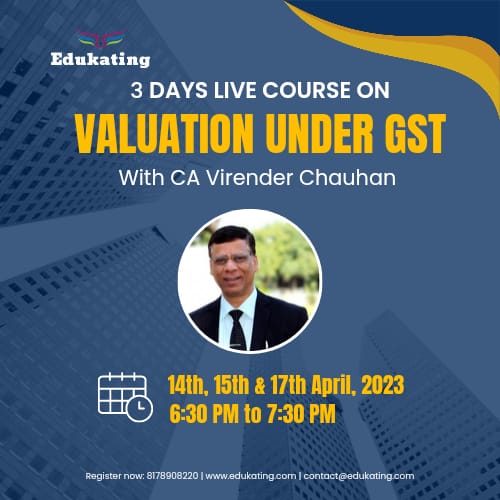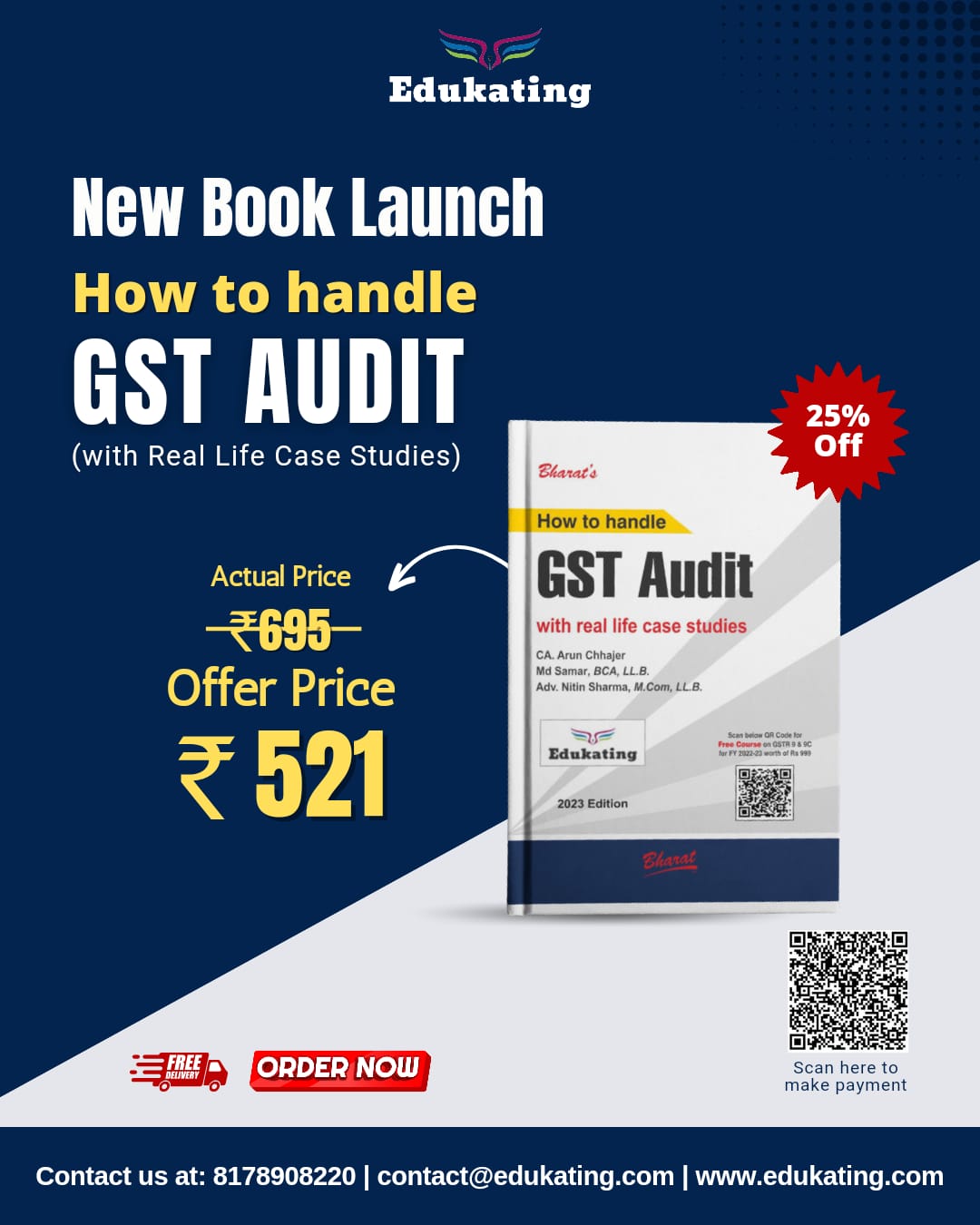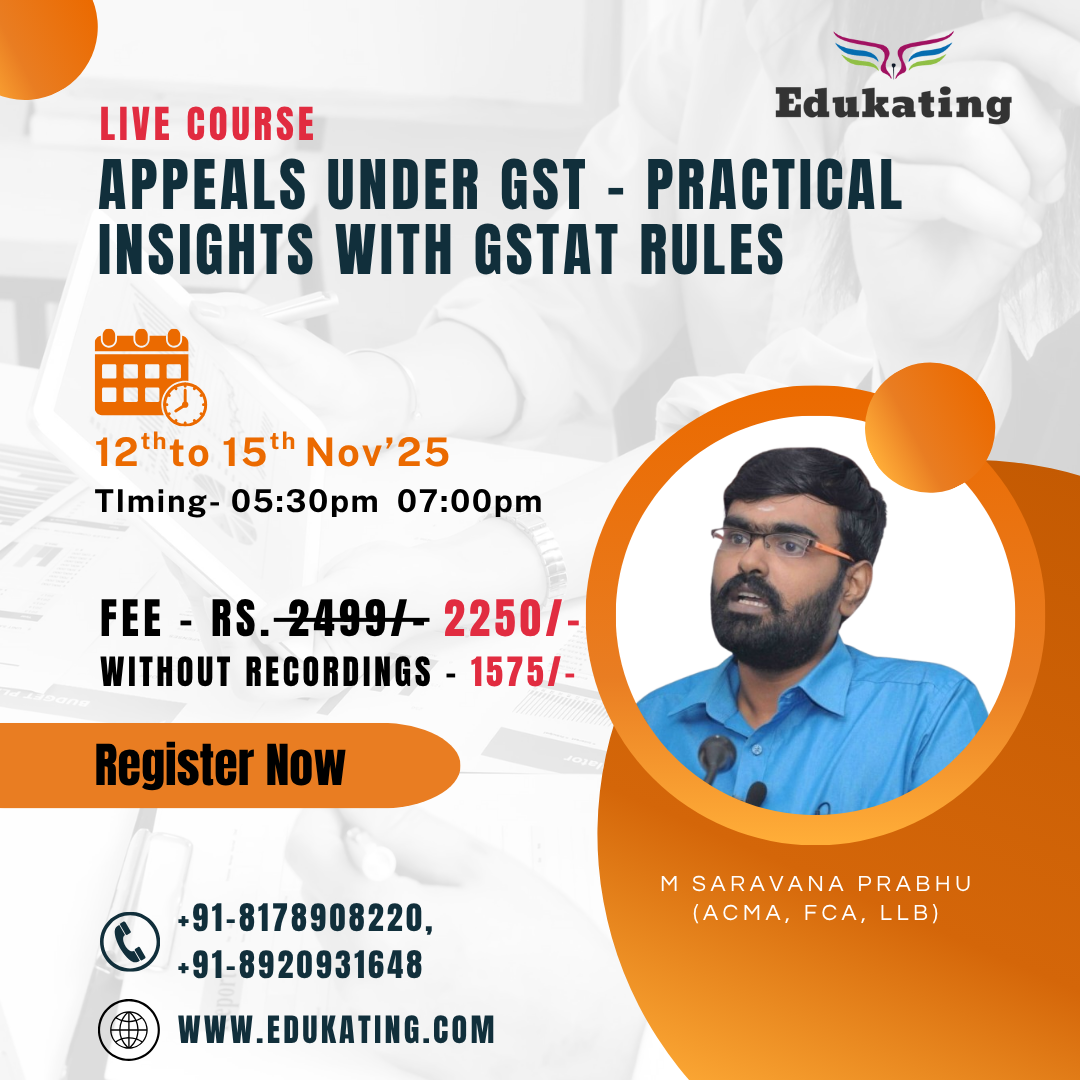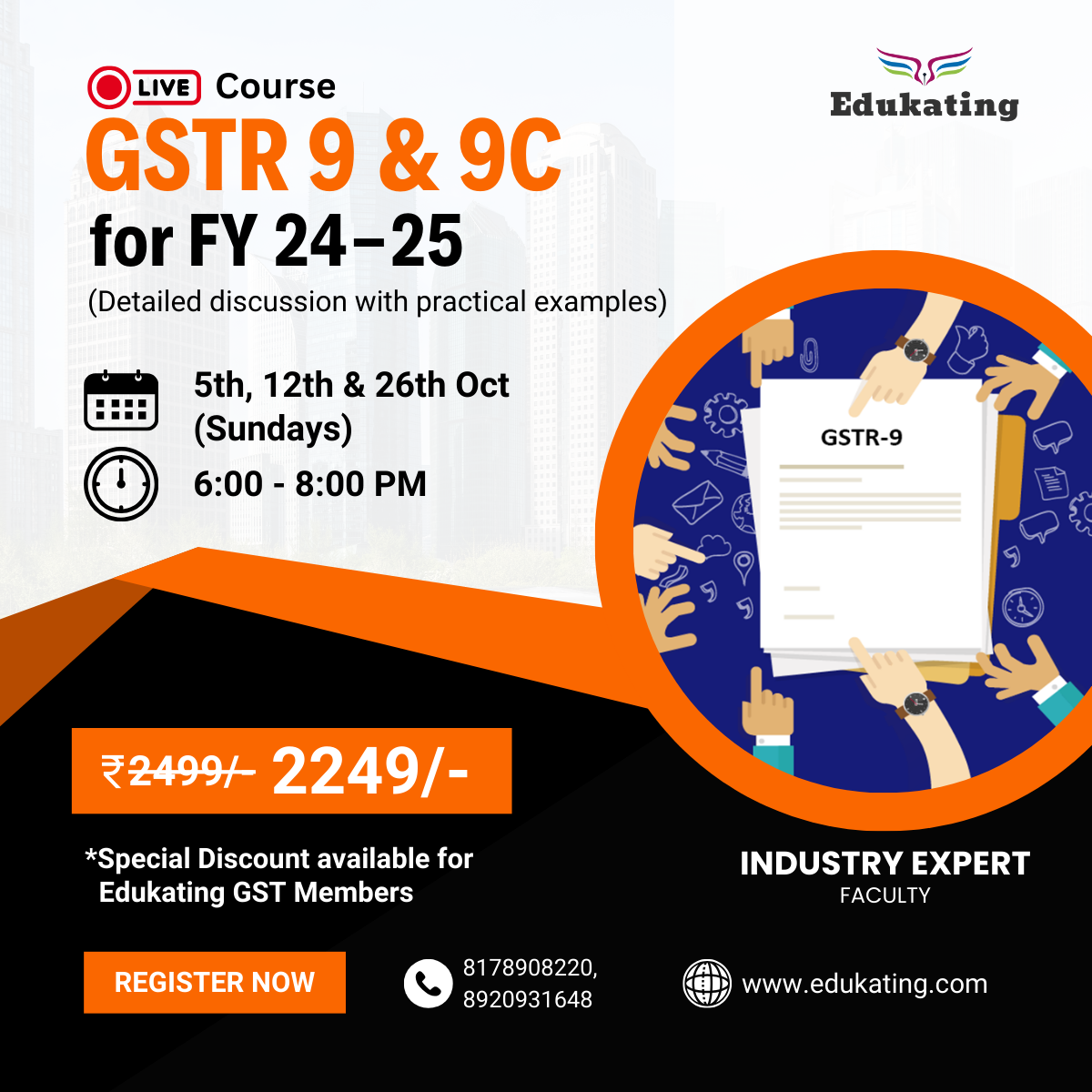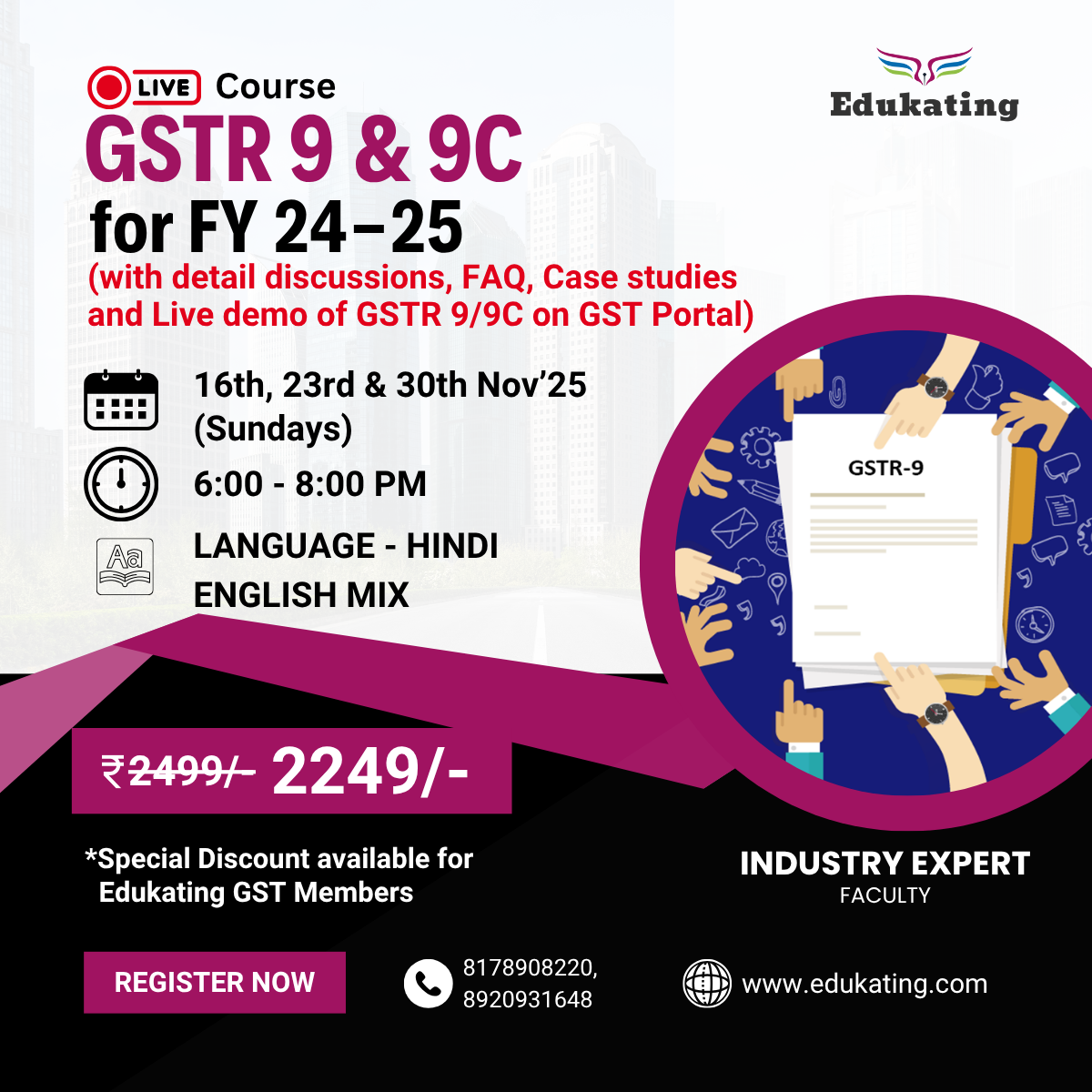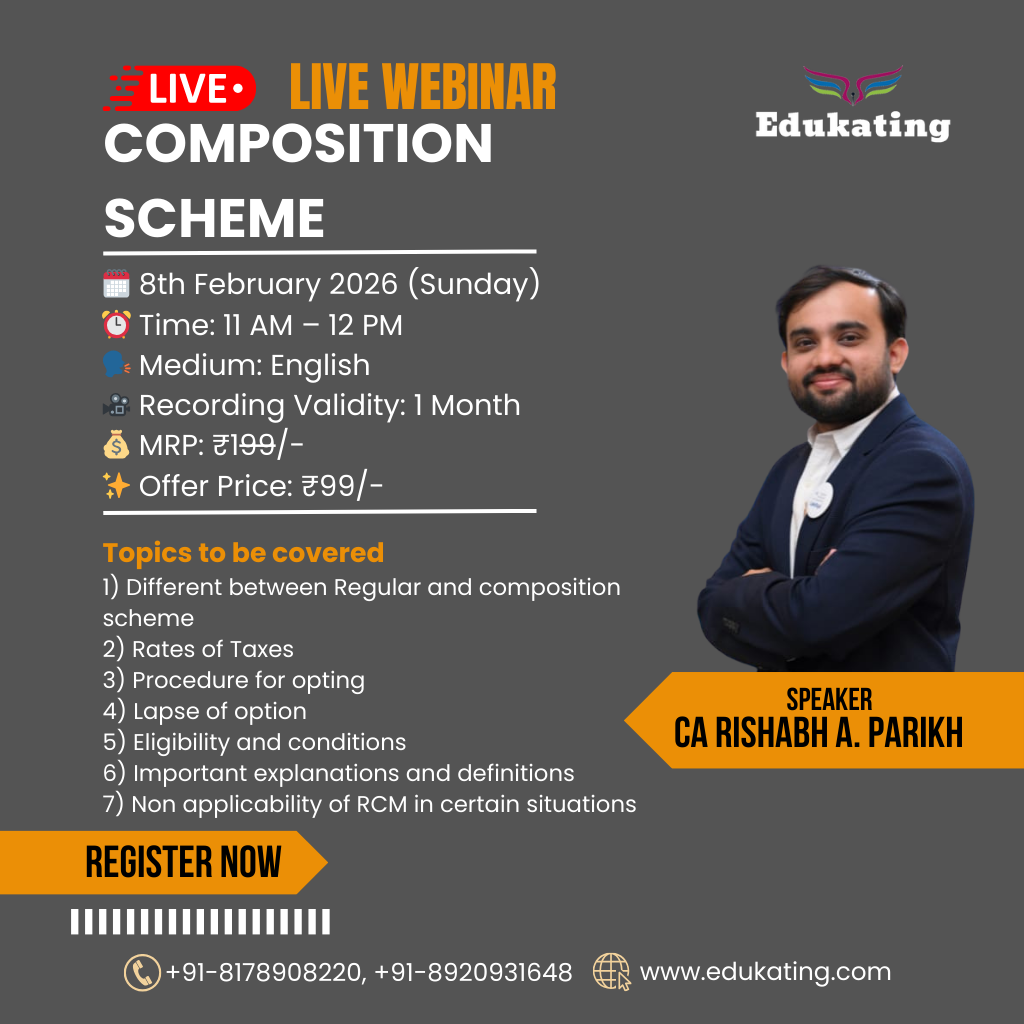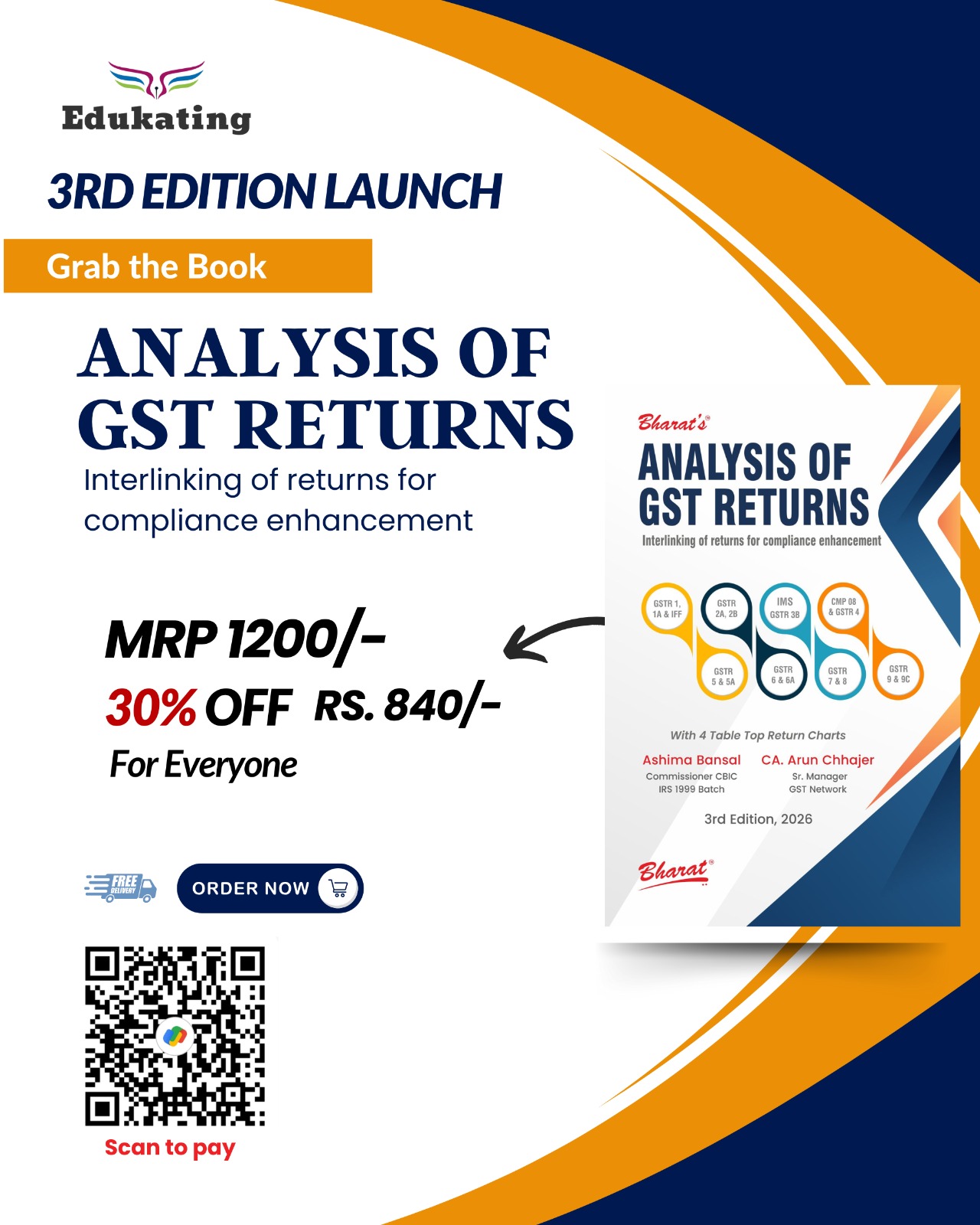Advance Ruling Under GST
As per Section 95 of CGST Act , “Advance ruling” means a decision provided by the Authority or the Appellate Authority to an applicant on matters or on questions specified in sub-section (2) of section 97 or sub-section (1) of section 100 of the CGST Act, 2017, in relation to the supply of goods or services or both being undertaken or proposed to be undertaken by the applicant.
Objectives for setting up a mechanism of Advance Ruling:
- It provide certainty in tax liability in advance, in relation to an activity proposed to be undertaken by the applicant;
- To attract Foreign Direct Investment (FDI);
- To Reduce litigation;
- To pronounce ruling expeditiously in a transparent and inexpensive manner;
- To remove ambiguity and provide clarity regarding the provisions of the GST Act;
- An opportunity of being heard to the applicant.
Questions for which Advance Ruling can be sought (Section 97 of CGST Act):
- Classification of any goods or services or both;
- Applicability of a notification issued under the provisions of CGST Act;
- Admissibility of input tax credit of tax paid or deemed to have been paid;
- Determination of the liability to pay tax on any goods or services or both;
- Whether applicant is required to be registered;
- Whether any particular thing done by the applicant with respect to any goods or services or both amounts to or results in a supply of goods or services or both, within the meaning of that term.
Further , Section 100(1) of the CGST Act, 2017 provides that the concerned officer, the jurisdictional officer or an applicant aggrieved by any advance ruling pronounced by the Authority for Advance Ruling, may appeal to the Appellate Authority.Thus, a decision of the Appellate authority is also treated as an advance ruling.
Authority for Advance Ruling (AAR) and Appellate Authority for Advance Ruling (AAAR):
Section 96 of CGST Act defines the Authority for Advance Ruling as the Authority for advance ruling constituted under the provisions of a State Goods and Services Tax Act or Union Territory Tax shall be deemed to be the Authority for advance ruling in respect of that State or Union territory.
Further , the ruling given by the AAR & AAAR will be applicable only within the jurisdiction of the concerned state or union territory.Authority for advance ruling’ (AAR) shall comprise one member CGST and one member SGST/ UTGST. They will be appointed by the Central and State government respectively.
An advance ruling pronounced by AAR or AAAR shall be binding only on the applicant who has sought the advance ruling and on the concerned officer or the jurisdictional officer in respect of the applicant.
However , following matters cannot be questioned before AAR :
- Questions already pending in any proceedings in case of the Applicant;
- Questions already decided in any proceedings in the case of an applicant.
Powers and Procedures of AAR and AAAR:
Both the AAR and AAAR are vested with the powers of a civil court under Code of Civil Procedure, 1908, for :
- discovery and inspection,
- enforcing the attendance of a person and examining him on oath, and
- compelling production of books of account and other records
Both AAR and AAAR , shall be deemed to be a Civil Court for the purpose of Section 195 of CrPC.They also have power to regulate their own procedures.
Time Period for applicability of Advance Ruling:
The law does not provide for a fixed or definite time period for which the ruling shall apply. Instead, it has been provided that advance ruling shall be binding till the period when the law, facts or circumstances supporting the original advance ruling have not changed.
Procedure for Filing an application for Advance Ruling (Section 97 Read with Rule 104 of CGST Rules , 2017):
- An application for obtaining an advance ruling under sub-section (1) of section 97 shall be made on the common portal in FORM GST ARA-01 and shall be accompanied by a fee of five thousand rupees, to be deposited in the manner specified in section 49.
- The application referred to in sub-rule (1), the verification contained therein and all the relevant documents accompanying such application shall be signed by authorised signatory.
- The format of the form and the detailed procedure for making an application have been prescribed in Rule 104 of the CGST Rules, 2017.
- After submission of an application in form GST ARA-01, the authority may, after examining the application and records called for and after hearing the applicant or his authorised representative and the concerned officer or his authorised representative, by order, either admit or reject the application under Sec. 98 (2) of CGST Act.
- A copy of order made under Sec. 98 (2), for admit or reject of application, shall be sent to the applicant and the concerned officer.
- If Application is Admitted : If the application is admitted, the AAR shall pronounce its ruling within ninety days of receipt of application. Before giving its ruling, it shall examine the application and any further material furnished by the applicant or by the concerned departmental officer.
- If the Application is not admitted : In case if the application is not admitted , AAR must give the Applicant or his authorised representative an opportunity of being heard. Such reasons for rejections shall be specified in the order.
When there is a difference of Opinion between the two members of AAR: In such a case , members of AAR shall refer the point or points on which they differ to the AAAR for hearing the issue.
If the members of AAAR are also unable to come to a common conclusion in regard to the point(s) referred to them by AAR, then it shall be deemed that no advance ruling can be given in respect of the question on which difference persists at the level of AAAR.
Appeals against order of AAR:
- The Appellate Authority for Advance Ruling constituted under the provisions of SGST or UGST shall be deemed to be the Appellate Authority in respect of that State or Union territory as per Section 99 of CGST Act, 2017.
- As per Section 100(1) of CGST Act , The concerned officer, the jurisdictional officer or an applicant aggrieved by any advance ruling pronounced under sub-section (4) of section 98, may appeal to the Appellate Authority.
- Every appeal under this section shall be filed within a period of thirty days from the date on which the ruling sought to be appealed against is communicated.[Section 100(2) of CGST Act]
- The Appellate Authority may extend the time period by 30 days if it is satisfied that Appellant was prevented by a sufficient cause from presenting the appeal within the said period of thirty days. [Proviso to Section 100(2)].
- The appeal against the advance ruling shall be made by an applicant on the common portal in FORM GST ARA-02 along with Rs. 10,000.
- An appeal against the advance ruling shall be made by the concerned officer or the jurisdictional officer in the form GST ARA-03 and no fee shall be payable by the said officer for filing the appeal.
- The appeal along with the verification documents shall be signed :
- In the case of the concerned officer or jurisdictional officer, by an officer authorised in writing by such officer; and
- In the case of an applicant, in the manner specified in rule 26 (DSC/e-signature).
- The appeal must be filed within thirty days from the date on which the advance ruling is communicated to the concerned officer, the jurisdictional officer and applicant.
Manual Filing of Applications before AAR and AAAR :
- As per Rules 104 and 106 , the application for obtaining an advance ruling and filing an appeal against an advance ruling shall be made by the applicant on the common portal.
- Circular no. 25/25/2017-GST dated 21.12.2017 prescribes the detailed procedure for manual filing of applications for Advance Ruling and appeals before Appellate Authority.
- Form and Manner of Application to the Authority for Advance Ruling :
- The application shall clearly state the Question on which Advance Ruling is Sought.
- The Application shall be made in Quadruplicate in the form GST ARA - 01.
- The application shall be accompanied by a fee of Rs. 5000.
- The Application , verification and all other documents shall be signed by authorised signatory.
- Form and Manner of Application to the Appellate Authority for Advance Ruling :
- The Appeal shall be made in Quadruplicate in the form GST ARA - 02.
- The application shall be accompanied by a fee of Rs. 10,000 to be deposited online.
- The Appeal made by the jurisdictional officer shall be in the form GST ARA - 03.
- Application shall be signed by an concerned officer or jurisdictional officer or by an officer authorised in writing by such officer.
Rectification of Mistakes:
- The law has granted powers to AAR and AAAR to rectify any mistake from the record within a period of six months from the date of the order.
- Such mistake may be noticed by the authority on its own accord or may be brought to its notice by the applicant or the prescribed or the jurisdictional CGST/SGST officer
- If a rectification has the effect of enhancing the tax liability or reducing the quantum of input tax credit, the applicant must be heard before the order is passed.
Thus , it can be concluded that law has introduced Advance Rulings to assure that the Disputes are Nominal.The aim is to provide certainty to the taxpayer regarding his obligations under the GST Act and an expeditious ruling. This will help in smoothing the relationship between the taxpayer and administration and in the long run unnecessary litigation can be avoided.





